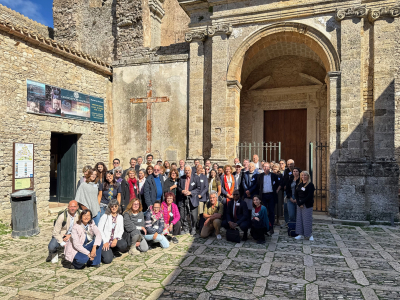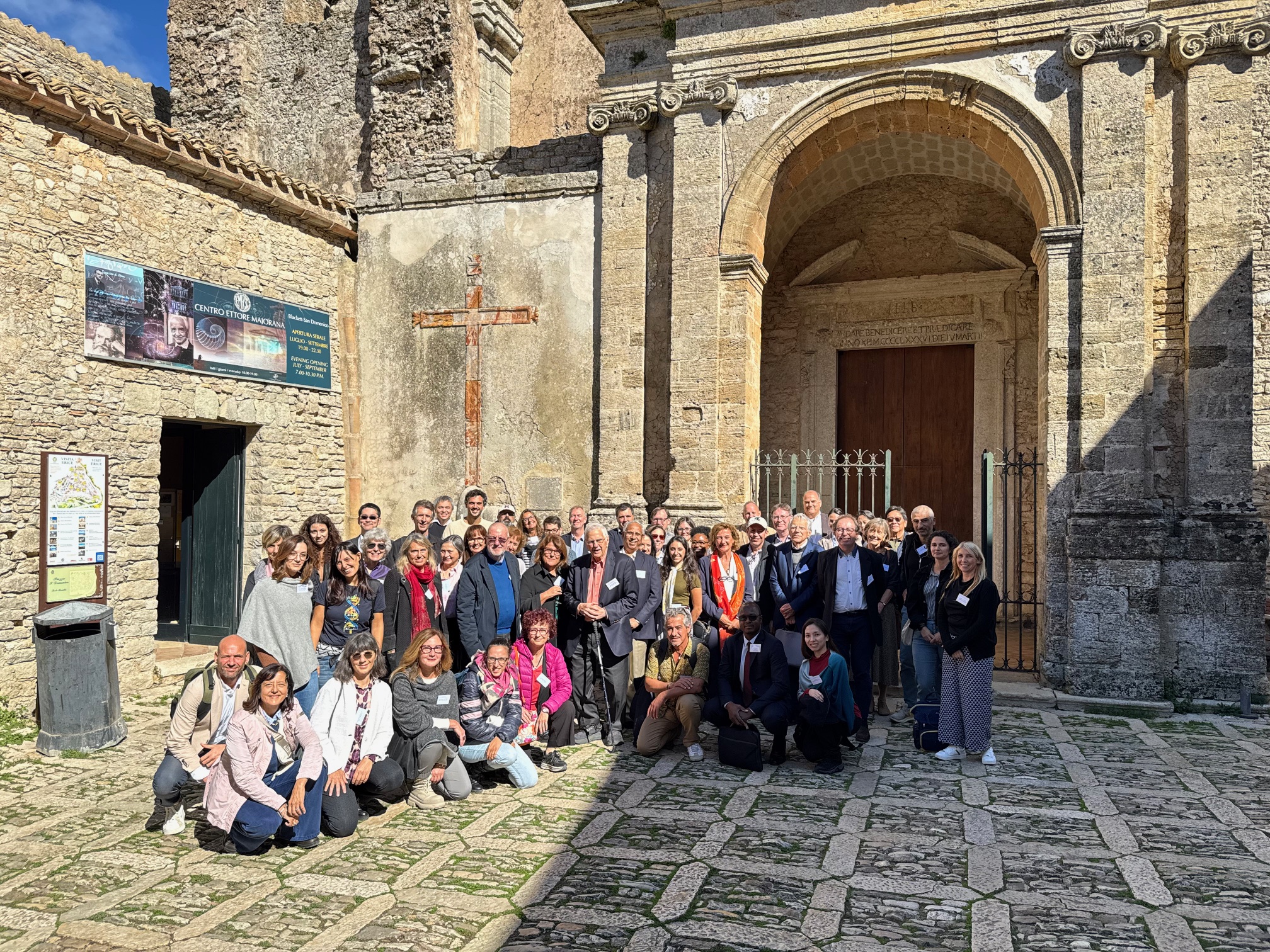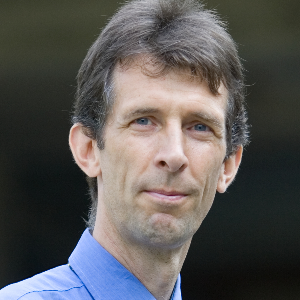


“We stand at a pivotal moment in molecular life sciences”, said Anna Pascucci “with rapid advancements pushing the boundaries of the field. Breakthroughs in understanding molecular mechanisms and the development of novel techniques, are expanding its applications in medicine, energy, and environmental science. As these advancements continue, our responsibility as scientists and educators grows. We need to support future generations to understand breakthroughs, discerning between evidence-based facts and unsubstantiated beliefs, and to grapple with ethical and societal implications. Molecular life sciences education is not only a scientific imperative but also a societal one.”
Pascucci is director of the Amgen Biotech Experience Program (ABE) in Italy and Co-director of the International School of Science Education (ISSE). The ISSE, created by the Ettore Majorana Foundation and Centre for Scientific Culture, halted by COVID-19 since 2019, restarted in Erice, Sicily, Italy, on 19-22 October, with the support of the Ettore Majorana Foundation, the ABE and the EmbiTec. About 50 participants attended, including a mix of science teachers, experts in science education, leaders of molecular biology education programmes, life science researchers, as well as representatives of international networks, including IAP (represented by Coordinator, Peter McGrath) and ICTP (represented by Joe Niemela).

The meeting was kicked off by a keynote presentation from Bruce Alberts, former President of the US National Academy of Sciences and AAAS, and co-author of a leading textbook on cell biology.
Alberts questioned the teacher-centric, rote learning model of teaching science, claiming that is was responsible for turning students away from the subject, which itself has manifested as a growing mistrust in science.
“To rebuild trust in science, and the public’s trust in such advances as vaccines, we need to start by improving our science education practices,” he challenged. “We not only need to find a way to integrate inquiry-based science education (IBSE) into the way school curricula are taught, but also explicitly teach students how science, as a community effort with many checks and balances, creates reliable knowledge for humanity.”
The meeting proceeded with discussions on how students learn; and the presentation of wet-lab and online opportunities for teachers and students to update their skills in molecular life sciences. Such resources include the ABE; the Wellcome Connecting Science programme based at the Wellcome Sanger Centre in the UK; and the EMBL (European Molecular Biology Laboratory) Science Education programme; as well as a model from the world of physics, focusing on optics, presented by the International Centre for Theoretical Physics (ICTP). The extensive programmes of the Smithsonian Science Education Center and of the Siemens Stiftung (Germany) in Latin America and Africa were presented as examples of implementing IBSE on a large scale.
Key outputs from the meeting were developed and agreed through the discussions of five Focus Groups:
“These discussions were very fruitful,” confirmed Pierre Léna, founder and Co-director of the ISSE. “They are being distilled into a statement, to be issued shortly, and will inform the future work not only of the ISSE, which plans future workshops on other cutting-edge areas of science, but also the work of many of the organisations represented here this week in Erice. We look forward to working with them to ensure that molecular life sciences, to be more closely related to climate change and biodiversity issues, find its proper place in the classroom.”
The ISSE Statement will soon be available here.
In closing, Bruce Alberts highlighted the importance of empowering and respecting teachers. “This is something that the science community has not done enough of in the past,” he said. “Teachers need all the support they can get from us, and it is clear from the discussions we’ve had that we want to do more to show how much we value their critical contributions by giving them a special role in our discussions as we move ahead.”
